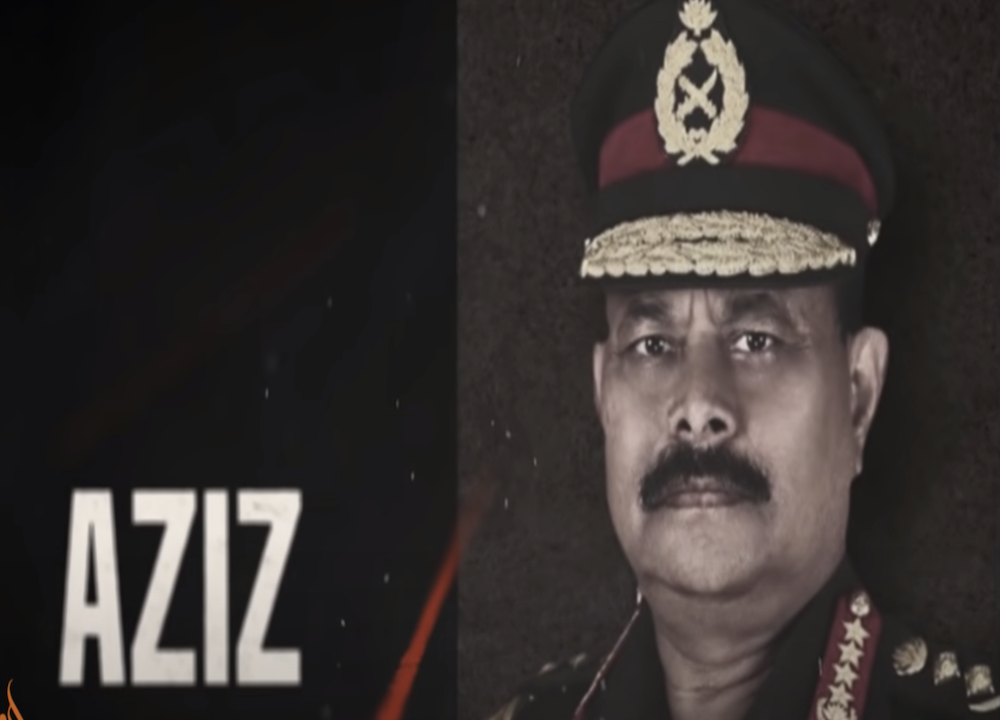Biden administration criticised for meetings with General Aziz
Rights groups concerned that meetings could act as endorsement of Chief of Army Staff, at centre of corruption allegations.

Human rights groups have criticised the decision by the US government to hold meetings with Bangladesh’s Chief of Army Staff, General Aziz Ahmed, who is currently in Washington on an official visit, following the broadcast of an Al Jazeera documentary claiming him to be at the centre of a network of political and financial corruption.
A US army spokesperson told Netra News that although it was “aware of the allegations” it would still continue to hold its meetings with Ahmed. “The US and Bangladesh armies share a close partnership, characterized by regular combined training exercises, education and training exchanges, and support to UN Peace Keeping Operations,” the spokesperson said.
Brad Adams, Asia Director at Human Rights Watch (HRW) told Netra News, that the US Army’s decision to meet with the head of Bangladesh’s army despite the serious corruption allegations against him, could act as an endorsement of his behavior.
“The kind of meetings that Aziz is having in DC can be used to give him the appearance of legitimacy or it may appear that the US is indifferent or even giving it blessing to the conduct that was reported in the Al Jazeera documentary,” Adams told Netra News.
“HRW has made it clear to the Biden administration that one of the major reforms it should undertake is to avoid meetings with military and police officials who are directly responsible or oversee armed forces that commit serious and grave human rights abuses in which they do not hold those accountable responsible,” he added.
He said that HRW had raised its concerns with the US State Department and the Pentagon about the meeting going forward.
Michael Kugelman, senior associate for South Asia at the Wilson Center also criticised the meetings.
“That is a misguided decision, not just because of the country’s geopolitical value but also because of its extreme democratic backsliding in recent years,” he told Netra News.
He also called on the Biden administration to put Bangladesh “on the front burner,” adding that the administration should be calling out Dhaka for both its crackdowns against political opposition as well as the recent revelations about General Aziz Ahmed.
“In that regard, the optics of this administration — especially in its very early days — hosting meetings with those implicated in these crimes are awkward, at the very least,” he added.
Adams did appreciate that cancelling the meetings might not be an easy decision for the Biden administration to make. “If they were to tell Aziz to go home — they would be challenging Hasina too,” Adams said. “But they should.”
He also pointed out there was no confirmed head of the South Asia department in the State Department making it difficult for officials to make such a big decision, particularly when the film only just been broadcast.
Netra News reached out to the office of Dean Thompson, Acting Assistant Secretary in the Bureau of South and Central Asian Affairs at the state department, but was referred back to the army.
Al Jazeera’s film, which has been viewed on Youtube over 3 million times since it was broadcast on February 1st, revealed multiple layers of corruption alleging that General Aziz Ahmed was involved in hiding two fugitive murderers, money laundering and falsifying documents to help one of his criminally convicted brothers escape the country and set up businesses in Europe.
The government has criticised the Al Jazeera documentary claiming in a press statement that it was “false and defamatory”, containing “a misleading series of innuendos and insinuations” and was a “politically motivated ‘smear campaign.’” It however did not point to any factual inaccuracies.
In Dhaka, the initial silence in the media about the allegations in the story appears to be slowly breaking with some recent reporting in the New Age. The Daily Star and The Dhaka Tribune have also written editorials tiptoeing around reporting on the claims in the film, resorting to questions about press freedom in the country.
“A central role for a free press is to write about the government, including exposing wrongdoing. This is an essential component of a functioning democracy,” Steven Butler, Asia Program Coordinator at the Committee to Protect Journalists told Netra News. “The fact that local media does not feel free to report on high-level corruption suggests that this crucial element of the democratic process is not functioning as it should.”●